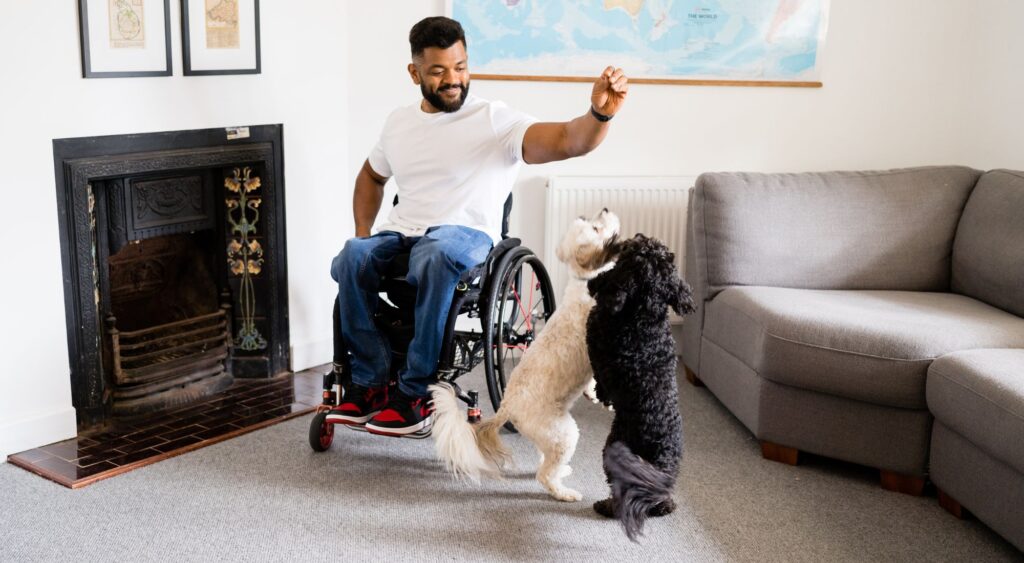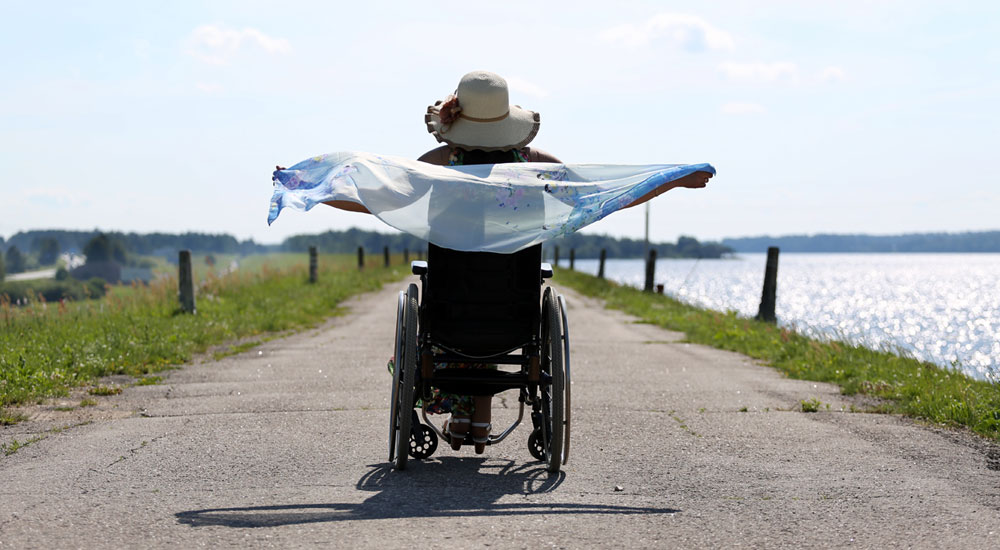Everyone struggles with mental wellbeing every now and then. Fear, anger, frustration, disappointment, helplessness… these are common emotions that every human being will experience in their life.
However, people with disability do experience higher levels of psychological distress than people without disability. If left unattended, these struggles can lead to long-term mental health concerns that can significantly impact on one’s overall health.
It is therefore important that a person with disability stay mentally healthy. Here are some tips on how to achieve that:
Tips on Staying Mentally Healthy
1. Have a routine and stick to it
It is easy to feel like things are slipping away from you when you have a disability condition.
A good way to keep your mental state steady is to have a routine and stick to it. Plan your daily activities carefully – this gives a comforting sense of control – and duly follow them. When you have a list of things to complete day to day, it gives life purpose and order.
2. Keep your body active
Exercise can never go wrong.
Not only is it good to remain physically fit, exercising is actually essential for the upkeep of mental health. It helps reduce anxiety and depression, relieve stress and tension, and improves sleep quality. It is therefore important that you keep your body active in any way you can.
There may be things that you cannot do anymore but don’t dwell on that. Instead, focus on finding the things that you can do. With a little creativity, there are actually many exercises that people with disability can do. Start small and build from there.
Remember to listen to your body and don’t compare yourself to others (or to your past self). When you become physically more fit, it helps boost your confidence and a higher self-esteem will make you feel mentally stronger and more positive.
3. Pick up a new hobby or interest
Your condition may render it harder (or even impossible) for you to enjoy the activities that you used to do.
Do not get disheartened. As with exercise, look for creative ways to see if you can still participate in a different way. Otherwise, take this opportunity to pick up a new hobby or interests. It doesn’t have to be limited to indoor – outdoor hobbies like gardening and fishing are fun and enjoyable too and let you get some fresh air and sun.
Staying engaged doing things that you enjoy makes a huge difference in a person’s mental health. It reduces feelings of anxiety and depression and the sense of accomplishment is a great confidence booster too.
4. Keep socially active
Isolation of any kind is unhealthy even for people without a disability so do keep socially active. If a party or restaurant can be too overwhelming, try simpler outings such as going to the park or visit a museum. Any kind of social connection will be beneficial, even basic interaction helps lift one’s spirits.
Join support groups. Many find meeting new people in similar situations facing similar challenges the best and easiest way to socialise. It gives them a safe place and a sense of security to share their struggles and help them combat loneliness and isolation.
5. Do volunteer work
Volunteering is a great way to overcome feelings of ‘loss of purpose’ that many people with disability tend to suffer. It helps one rediscover their sense of purpose and achieve fulfilment and empowerment that is beneficial to the mental wellbeing.
Not only can one feel more productive, the feeling that they can make a difference in someone else’s life is extremely rewarding and enhancing to the mental health. By donating your time volunteering for a worthy cause, it is also a great way to give back to the community in a tangible way.
Signs of Poor Mental Health and What to Do About It
If you ever notice any of the following signs in your loved one with a disability, seek professional help before things escalate:
- Withdrawal
- Sleep or appetite changes
- Increased sensitivity
- Apathy
- Drop in functioning
- Nervousness
- Illogical thinking and unusual behaviour
- Suicidal thoughts
Often, friends and family members are the first line of defence from any mental health conditions as they are the very first people who can notice signs of mental distress.
The sad truth is, many fail to recognise it (or sweep it away as insignificant if they do) because most of their attention are focused on the physical needs of a person with disability, thereby neglecting the emotional and spiritual side of things.
If you find yourself unable to cope or help your loved one with a disability, seek professional help. Engaging a support worker can be the very first step and it can make a huge difference. For one, you are able to discover any mental distress much swiftly. Professional support workers are trained to observe even the tiniest of sign – it is their job and they know the things to look out for, including assessing when external help is required.
In any case, having a support worker ensure your loved one with disability get extra help with their day-to-day activities in addition to regular companionship when you don’t have the capacity to provide that.
Conclusion
Adapting to life with a disability is never easy. However, know that there are ways to cope with limitations and overcome challenges, and always remember that you are still in control of your life.
Living a rich and joyful life is still possible regardless of the challenges and difficulties, and mental health plays a key role in that. So, do not leave any of your negative emotions unchecked. Stay physically fit, mentally engaged and socially active, and seek professional help the first sign you find yourself struggling to cope.






